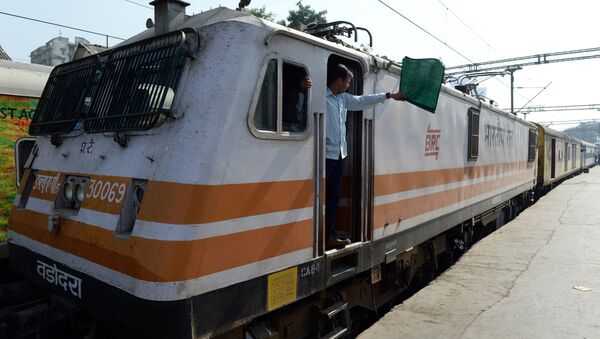New Delhi (Sputnik) — The first railway in India was built by the British in 1853 and ran from Mumbai to Thane, but it took 163 years for Indian Railways to add toilets in the engine for the drivers. Until recently train drivers had to wait for the next station to arrive to answer nature's call. This has been the experience for more than 60,000 engine drivers over the last 163 years.
In an historical move,
— प्रेम और आनन्द (@PremYadav) 7 May 2016
After 163 years, #Railways to put toilets in train engines.
A good Initiative indeed 👍👍 pic.twitter.com/vW9Mk44y1T
Finally, after 163 years Indian Railways introduced the first locomotive engine fitted with bio-toilets which was signed off by the Railway Minister Suresh Prabhu. It has come as a major relief to all these train drivers. These bio-toilets are fitted with various sensors and features for the safety and security of the passengers. The door of the toilets will open only when the train speed is not moving and will be locked while the train is in motion. As a further precaution, when the train driver is inside the toilet, the engine brakes cannot be released by any system.
The demand for a toilet in the engine has been raised by the train engine drivers from time to time, but every time Indian Railways quashed the demands on the grounds that it was not feasible to make a toilet in the engine in the overall interests of the passenger safety.
#Humanrights News — Train drivers drag Railways to Human Rights for no 'toilet breaks' during work https://t.co/OaDryf0auv
— Human Rights News (@OthrFactsOfLife) 17 January 2016
In fact, the engine drivers had to turn to the National Human Rights Commission because of their inhuman working conditions, as they have to work 12 hours a day without any break and the stress of the work has resulted in a number of major train accidents.
The introduction of toilets in the engine has come as a major relief to the train drivers, and will no doubt reduce their stress and will improve working conditions.



